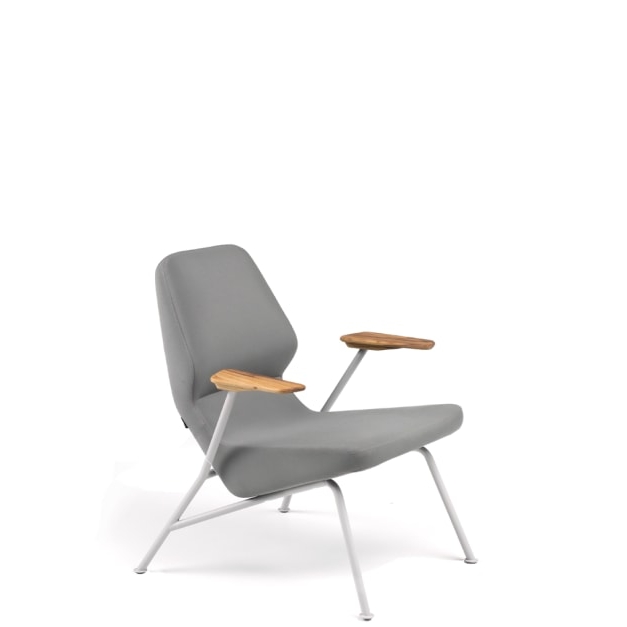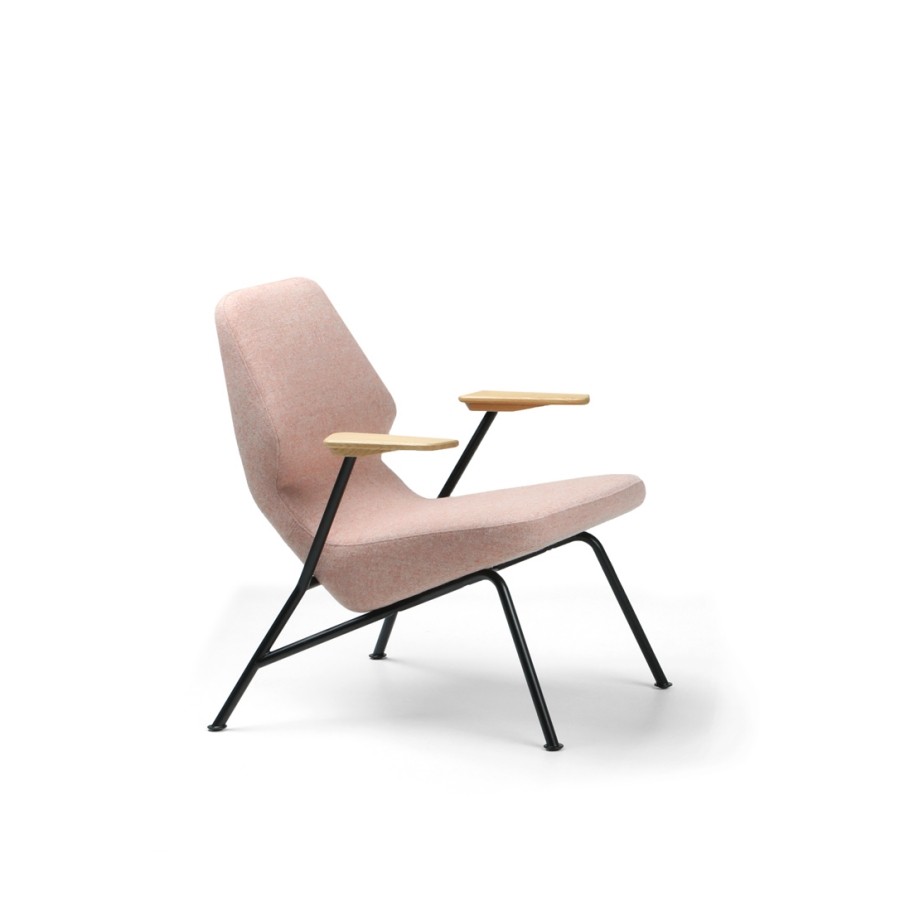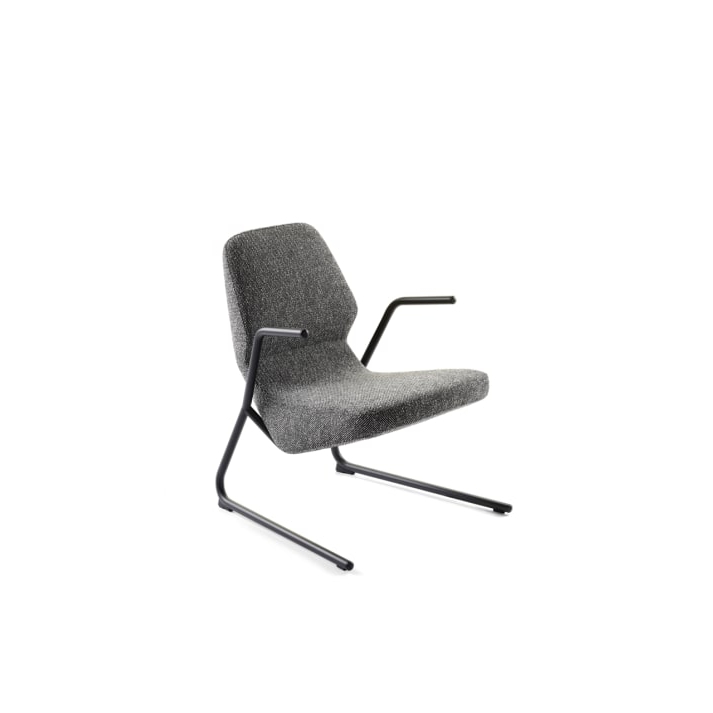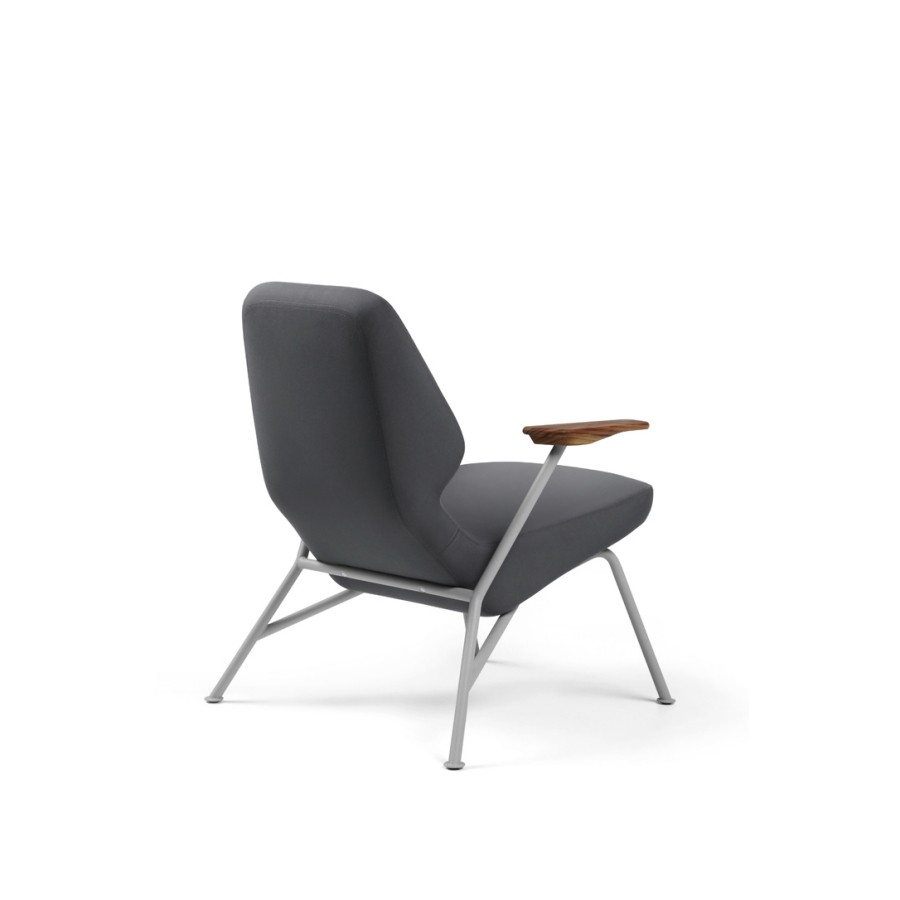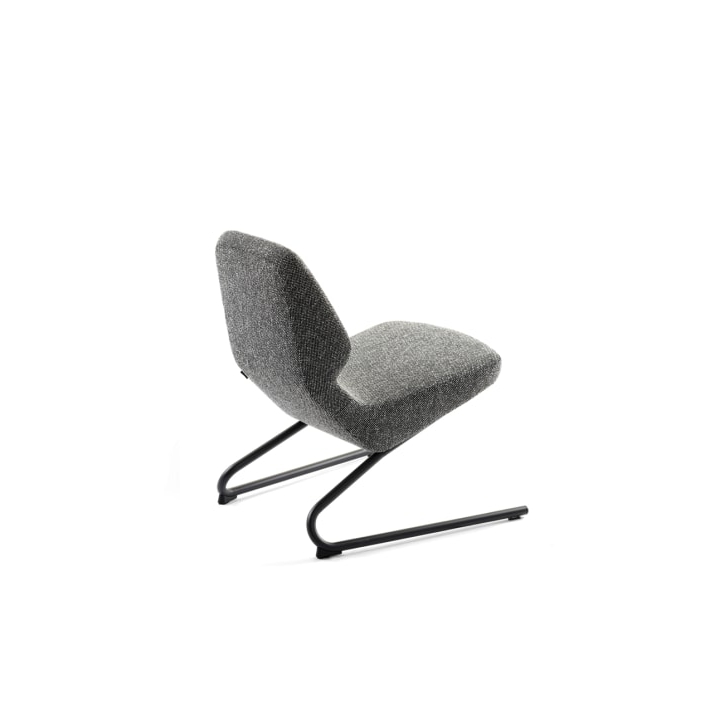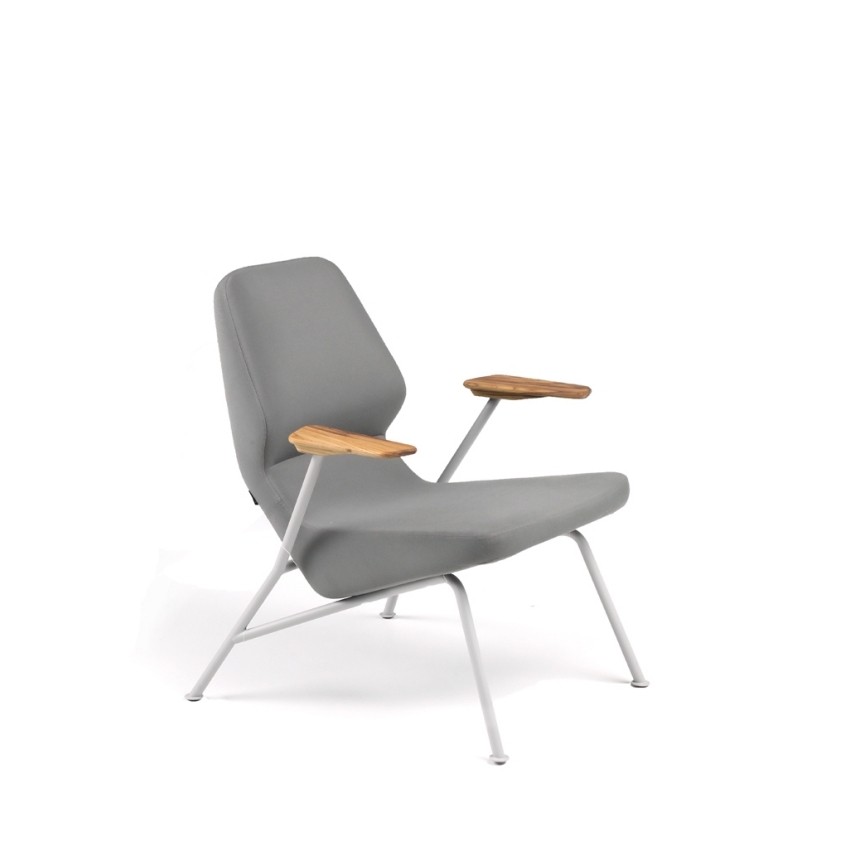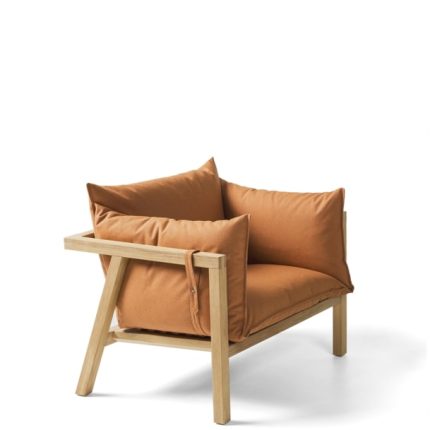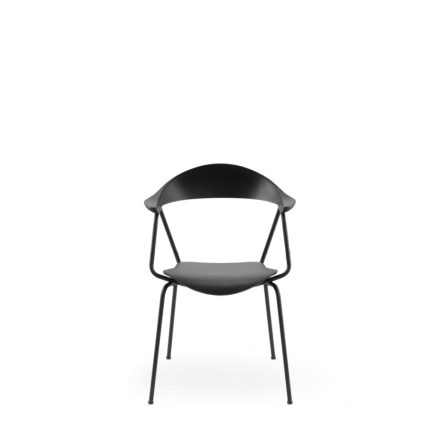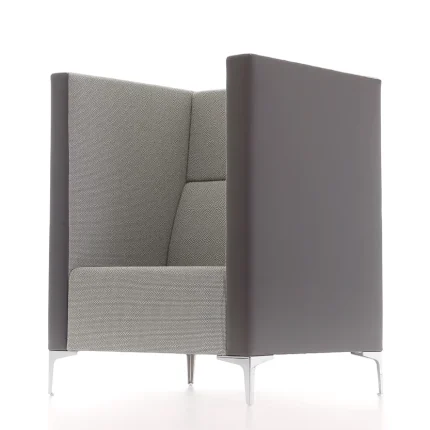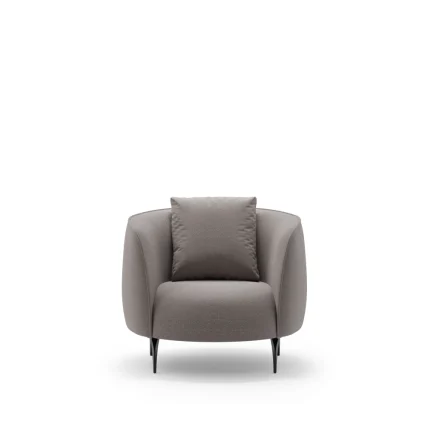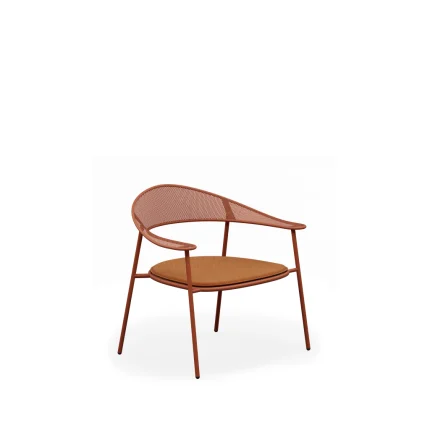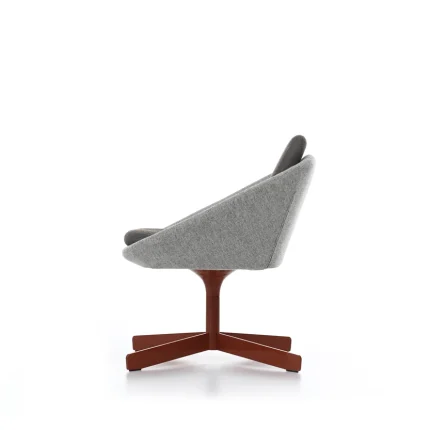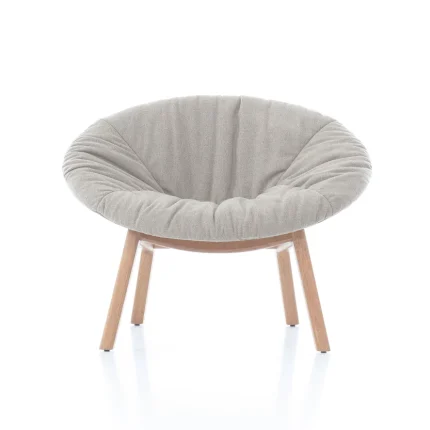Oblique Lounge Chair OUTDOOR | © By Numen/Foruse
A completely new typology of outdoor furniture is brought to market with Oblique family of products. The products look the same as the indoor version, just the materials are made for outdoor use.
The basis of the system is the characteristic profile of a sofa which, defined by two triangular prisms, ensures maximum foam thickness on the rear of the seat and the backseat's lumbar area. The structural veneer moulding is bent around two axes and is upholstered together with the foam, resulting in a unified pulsating form. As a result of the triangulation, the solid oak legs thin towards the bottom, thus transforming the square cross-section of the top of the legs into their bases' triangle.
Oblique collection has been completed in its uniqueness. The pulsating form of an armchair on the chair has had its full affirmation, and with its reduced volume communicates in different style context. The character of the entire collection has been mostly expressed with the Oblique table. Specific geometry of the legs made of massive oak in combination with the floating white tabletop in this dimension is simply perfect.
Dimensions:
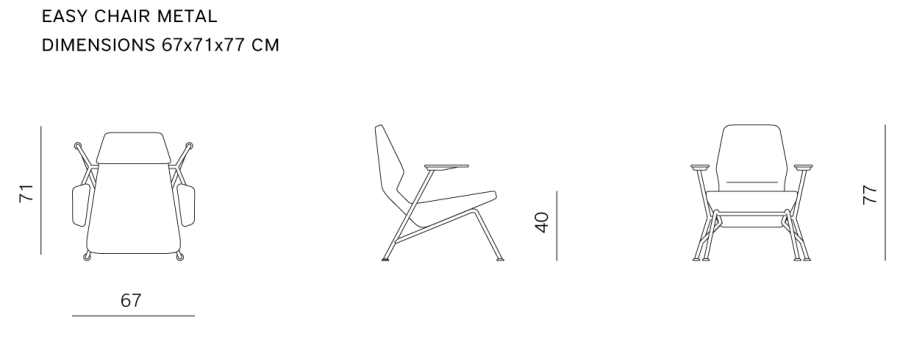
| shell | moulded foam, metal frame, elastic webbing |
|---|---|
| base | metal rod Ø20 mm + powder coated matte outdoor |
| armrests | solid wood + outdoor oil |
| upholstery | waterproof fabric |

Numen/ForUse
Numen/ForUse is a Croatian-Austrian design collective working in the fields of scenography, industrial and spatial design and conceptual art. The group was first formed in 1998 as a collaborative effort of industrial designers. Under the banner ForUse they designed for Cappellini, ClassiCon, Desalto, Interlubke, Magis, MDF Italia, Moroso and Zanotta. Numen/ForUse are the only Croatian contemporary product designers whose works are regularly represented in global anthologies of contemporary design.
[embedyt] https://www.youtube.com/watch?v=mru7rSC8-qw[/embedyt]
Prostoria
Innovation as Social Responsibility
We tend to perceive furniture as something abstract, created on designers’ desks and then produced, branded and placed on the market by companies with different statuses and reputations. In fact, relations inside the contemporary globalized furniture industry are becoming more and more fragmented with less and less opportunity for complete dedication to synergies and collaborations… Prostoria, as a young company whose catalog already comprises some new icons such as the Polygon armchair and the Revolve transformable sofa, stands as an example of a different and more traditional approach based on the evolution from the local factuality and logical clustering of all actors involved in the production process. Rapid development of Prostoria, formerly known as Kvadra, a company which has come a long way, from “starting from zero” to positioning itself as the leader and promoter of new ideas in only a few years time, is a story about the reintroduction of continuity both in Croatia and Central Europe, a region with vital but insufficiently recognized design scene and remarkable tradition and knowledge of the furniture industry. Those elements served as latent potentials that provided grounds for the continuation and had to be activated. Since the beginning, Prostoria has been developing an integrative approach, functioning as a collaboration platform that nourishes and stimulates the continuous exchange of knowledge and experience between all the actors participating in the production of furniture. A dynamic workshop ambiance has been created offering opportunities mainly to young designers to explore their ideas in excellent conditions and bring them to the highest level of design, functionality and technological artisanship. Many products have been developed over long periods of time surpassing a number of iterations until reaching their final form, which would be impossible without the adequate support combining the contemporary technology and meticulous craftsmanship and handwork of the highest quality. Predominantly local materials are used, especially solid wood, and most of the production takes place within the company itself or in collaboration with local cooperatives. While the company’s catalog also offers furniture based on tested models, Prostoria shows strategic and even passionate dedication to research-based design, convinced that authenticity has its place on the market but presents a special challenge in the times when it seems almost impossible to create truly innovative and fresh concepts. For that reason, Prostoria’s social responsibility and specific position have to be observed as a contribution to the evolution of design and readiness to take the risk in order to reach new values for the benefit of users and the culture. Thus, Prostoria stands as a project inside of which designers grow together with the company on the grounds of mutual trust and shared goals.

